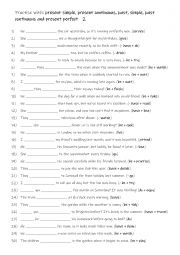
|
A2-B1 Practise with present simple, present continuous, past, simple, past continuous and present perfect 2
First, students need to familiarise themselves with the 5 tenses and their use. Then they read the sentences to see which one is needed to complete the sentence using the given infinitive in (). Each tense is used 6 times! Answers on page 2.
Level: elementary
Age: 9-100
Type:
Downloads: 124
|
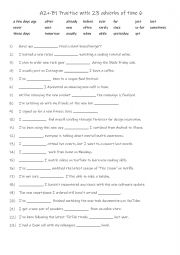
|
A2+-B1 Practise with 23 adverbs of time 6
Recognising these expressions improves listening and reading comprehension, enabling students to grasp stories, instructions, and conversations more effectively. First, students need to familiarise themselves with the 23 time expressions and their use. Then they read the sentences to work out which one is needed to complete the gap-fill. Answers on...
Level: elementary
Age: 11-100
Type:
Downloads: 119
|
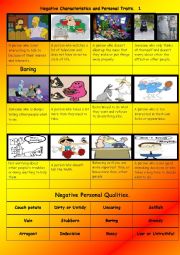
|
Negative Characteristics and Personal Traits. 1
Students look at each picture and read the description then match it with the appropriate adjective or noun. Part 1 of 3.
Level: intermediate
Age: 11-100
Type: worksheet
Downloads: 260
|
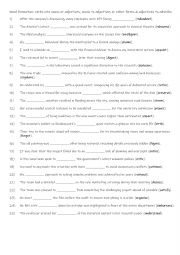
|
B1-B2 Word formation verbs into nouns or adjectives, nouns to adjectives or other forms & adjectives to adverbs
Students read the sentences and complete the gap-fill with the correct form of word in bold at the end of the sentence. Answers on page 2.
Level: intermediate
Age: 12-100
Type:
Downloads: 123
|
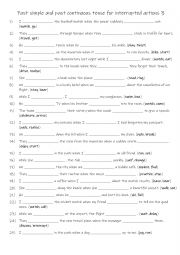
|
A1+-A2 Past simple and past continuous tense for interrupted actions 3
Learning the past simple and past continuous tenses for interrupted actions is essential because they help students describe events that were happening in the past when something else occurred. The past continuous is used to show the action that was in progress at a specific time in the past, while the past simple is used to describe the action tha...
Level: elementary
Age: 8-100
Type:
Downloads: 119
|
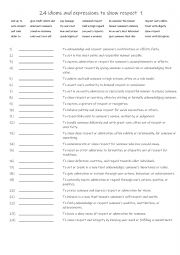
|
B1+-C1 24 idioms and expressions to show respect 1
First, students need to familiarise themselves with the 20 idioms and expressions and their meanings. Then they read the definitions to see which one is being described and write that word in the space provided Answers on page 2.
Level: intermediate
Age: 12-100
Type:
Downloads: 105
|
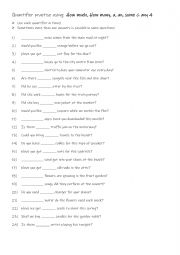
|
Quantifier practise using How much, How many, a, an, some & any 4
Students first familiarise themselves with the 6 quantifiers and their use. Then they complete the gap-fill with the correct word. Each quantifier is used 4 times! Answers on page 2.
Level: elementary
Age: 8-100
Type:
Downloads: 122
|

|
How would you respond?
This worksheet uses a variety of modal verbs to say how you would respond to 20 different situations. For lower level students, I normally cut the sheet in half Student A / Student B as they tend to read the question rather than developing listening skills. In class you can use phrases such as: I don�t follow you/ Again please / What does _______...
Level: intermediate
Age: 14-100
Type:
Downloads: 233
|
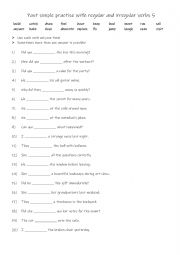
|
Past simple practise with regular and irregular verbs 5
Students first familiarise themselves with the 20 verbs. Then they complete the gap-fill with the correct form of that verb. Answers on page 2.
Level: elementary
Age: 7-100
Type:
Downloads: 140
|
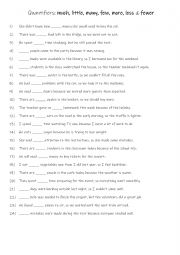
|
A2-B1 Quantifiers - much, little, many, few, more, less & fewer
Students familiarise themselves with the 7 quantifiers and their use and meanings . Then they read the sentences to see which quantifier is needed/ suitable to complete the gap-fill.
Level: elementary
Age: 8-100
Type:
Downloads: 102
|












